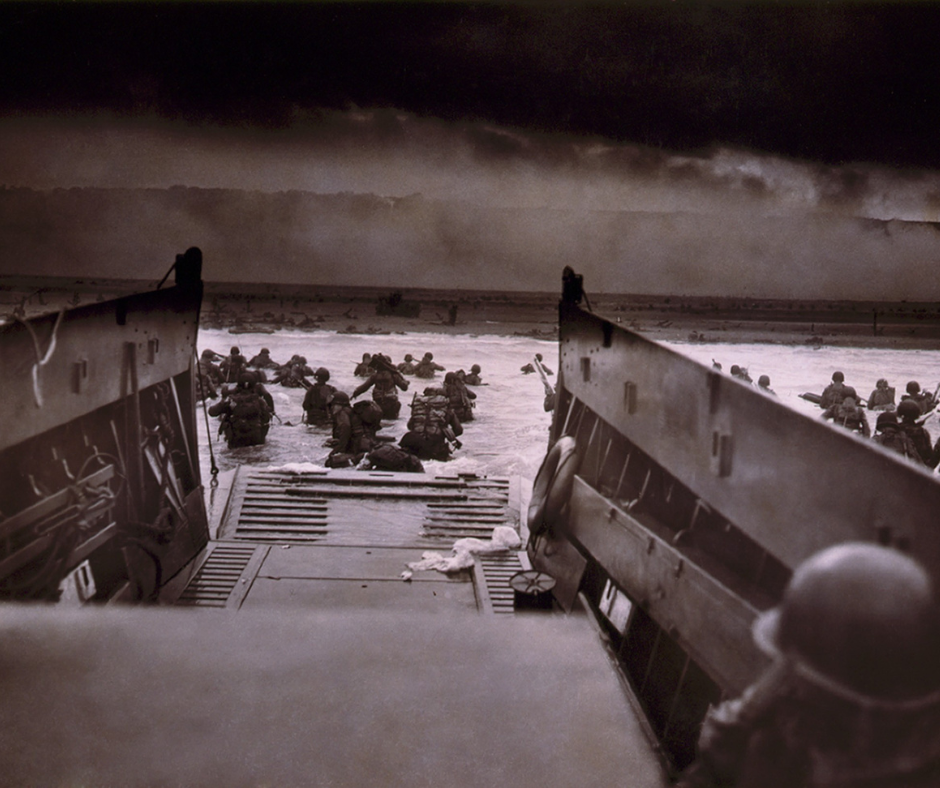Commemoration of the 80th Anniversary of the D-Day landings from our Head of History
6th June 24
The year 2024 marks the 80th anniversary of many Second World War battles, Monte Casino (18 May), Kohima 22 June 2024, Imphal (18 July), Operation Market Garden (25 September), The Scheldt (8 November), all turning points in the Allied road to victory against Nazi Germany and the Axis powers.
Today, 6th June, 2024 commemorates D-Day, the start of Operation Overlord, codenamed Operation Neptune, the invasion by the Allies of Normandy. While taking a few hours to complete, D-Day took months to plan which is in fact marked in the name of the Battle, D-Day, which means Day-Day, the day of battle, as opposed D-(minus) 1, or D- (minus 2) or D+ (plus) 5 and so on to mark the number of days before and after the battle. In fact, there would have been many D-days in the War, but because the Normandy D-Day was so momentous it is the only one that has remained prominent in collective memory.

D-Day involved incredible deception that included fake tanks and armour that were strategically placed in Kent to fool Hitler into thinking the invasion was being prepared for Calais, miles away from the real target, Normandy. It involved fake radio messages to reinforce this deception. It involved ingenious inventions like Mulberry Harbours to provide a ready-made port in the absence of a real one and it involved pipelines under the Ocean (PLUTO) to provide a steady supply of fuel.
Above all, it involved unimaginable courage of the soldiers who participated in this greatest amphibious invasion of all time.

D-Day was actually planned for 5th June but needed to be postponed to the following day because of inclement weather in the English Channel. It would have been postponed again had it not been for a window of good weather that had been forecast for 6th of June. Had it not gone ahead then, it may not have happened for a number of weeks in view of changing tides. Such a delay could have had significant consequences for the prospects of an allied victory.
Operation Overlord commenced shortly after midnight on 6th June 1944 with a huge aerial and naval bombardment of German positions in Normandy. Accompanying this was an airborne landing of British, American and Canadian forces behind enemy lines involving 24,000 troops. At 6.30 am the amphibious landing of five Normandy beaches – Utah, Omaha, Gold, Juno, and Sword – got under way, involving nearly 200,000 naval personnel and 135,000 troops from numerous countries – Britain, America, Canada, France , Poland, Holland, Norway, New Zealand, Greece, South Africa, South Rhodesia, Czechoslovakia and Australia – who were transported in 7000 ships and landing craft.
In purely military terms, the operation was a great success, gaining a bridgehead on the Continent from which the Allies over the next year or so would reach Germany to meet up with the forces of the Soviet Union, which had battled their way from the east. The war in Europe ended on 8th May.
In human terms Operation Overlord resulted in 10,000 Allied casualties of which at 4,414 were confirmed dead.
Today, we honour and remember these men for their courage and sacrifice.
Greg Slysz, History Teacher





